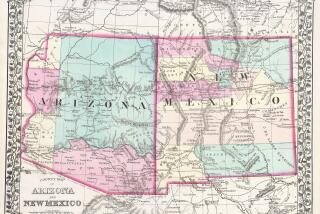Lawmakers Question New Intelligence Center’s Role
House members Tuesday lambasted the Terrorist Threat Intelligence Center, a new piece of the government designed to coordinate the analysis of intelligence gathered by the CIA, FBI and Department of Homeland Security, as a step toward more bureaucracy and less analysis.
The intelligence center, staffed by more than 100 agents from all three agencies as well as the State and Defense departments, was established to remedy a widely acknowledged failure of the CIA and the FBI to share critical intelligence in the months leading up to the terrorist attacks of Sept. 11, 2001.
Members of the House homeland security and judiciary committees, at a joint hearing, said the center began May 1 with the deck stacked against it.
“There is an unclear division of responsibility and therefore no basis of accountability,” said Rep. Jim Turner of Texas, the ranking Democrat on the Homeland Security Committee. “The robust intelligence unit envisioned by the Homeland Security Act does not exist today.”
The confusion and criticism reflect the difficulties faced by Congress and the administration as they have tried to centralize some of the government’s vast intelligence operations.
The center has no bureaucratic identity but is rather a free-floating body whose chief reports to CIA Director George J. Tenet -- an anomaly that confused and concerned House members. Why, they asked, could not the Homeland Security Department coordinate intelligence?
The intelligence center’s director, former CIA official John Brennan, testified that his organization was an “innovative joint venture,” valuable for the expertise of its staff.
“We’ve already witnessed the force-multiplier effect of having agents from partner agencies sharing information, insight, analysis,” Brennan said. “No single agency has the authority or capability to deal with the terrorist threat.”
The intelligence center has “full, unfettered access” to all of the raw security information available to the U.S. government, Brennan said. The center focuses on reports of threats overseas, then analyzes and interprets that information for partner agencies.
The intelligence arm of the Homeland Security Department has access to the same information, but concentrates on analyzing domestic threats. It also tells state and local governments and businesses how best to protect infrastructures against potential terrorist attacks, testified Bill Parrish, the department’s acting assistant secretary for information analysis.
Parrish emphasized that the new intelligence center was “complementary, not competitive” with his agency.
Committee members questioned why the center was not a part of the Homeland Security Department. “What this looks like is the intelligence community’s jobs-forever program,” said Rep. Loretta Sanchez (D-Anaheim). “Why are we duplicating our efforts?”
The overlap between agencies is supposed to prevent gaps and “connect the dots” in intelligence gathering and analysis, Parrish said.
As a result, Parrish and Brennan acknowledged, no single organization is ultimately accountable to Congress. “It’s a shared responsibility,” Parrish said. “It cuts across the entire federal government.”
More to Read
Get the L.A. Times Politics newsletter
Deeply reported insights into legislation, politics and policy from Sacramento, Washington and beyond. In your inbox three times per week.
You may occasionally receive promotional content from the Los Angeles Times.






